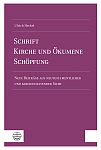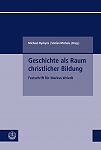Joo Mee Hur
Hier geht es zur Leseprobe.
Christian women who put faith in action have been in solidarity with marginalized women in South Korea since the 1960s – most prominently, women workers since the 1960s, women victims of sexual violence since the 1970s, and women migrants since the 1990s. This volume focuses on the marginalized female marriage migrants and their experience of oppression. It analyses their socio-political context through a complementary subjective-objective approach and fosters a hermeneutics of empathy between Korean women and female marriage migrants based on historical scrutiny. In searching the scriptures Joo Mee Hur adapts intercultural theology for liberation, balancing between contextual hermeneutics and textual hermeneutics. Contrapuntally the author also opens a theological dialogue ...
mehr
Joo Mee Hur
Hier geht es zur Leseprobe.
Christian women who put faith in action have been in solidarity with marginalized women in South Korea since the 1960s – most prominently, women workers since the 1960s, women victims of sexual violence since the 1970s, and women migrants since the 1990s. This volume focuses on the marginalized female marriage migrants and their experience of oppression. It analyses their socio-political context through a complementary subjective-objective approach and fosters a hermeneutics of empathy between Korean women and female marriage migrants based on historical scrutiny. In searching the scriptures Joo Mee Hur adapts intercultural theology for liberation, balancing between contextual hermeneutics and textual hermeneutics. Contrapuntally the author also opens a theological dialogue with the arts, which leads to a critical response and ethical commitment.
[Den Namen der Mutter erben. Interkulturelle Theologie, weibliche Subjektivität und die Künste]
Christliche Frauen, die ihren Glauben in die Tat umsetzen, solidarisieren sich seit den 1960er Jahren mit marginalisierten Frauen in Südkorea – mit Arbeiterinnen seit den 1960er Jahren, mit weiblichen Opfern sexueller Gewalt seit den 1970er Jahren und Migrantinnen seit den 1990er Jahren. Dieser Band konzentriert sich auf die marginalisierten Heiratsmigrantinnen und ihre Erfahrungen mit Unterdrückung. Er analysiert ihren gesellschaftspolitischen Kontext durch einen komplementären subjektiv-objektiven Ansatz und fördert eine Hermeneutik der Empathie zwischen koreanischen Frauen und weiblichen Heiratsmigrantinnen auf der Grundlage historischer Untersuchungen. Bei der Suche nach den Schriften adaptiert Joo Mee Hur die interkulturelle Theologie für die Befreiung und balanciert zwischen kontextueller Hermeneutik und textueller Hermeneutik. Kontrapunktisch eröffnet die Autorin auch einen theologischen Dialog mit den Künsten, der zu kritischer Auseinandersetzung und ethischem Engagement führt.
Zum Autor
Joo Mee Hur holds a Bachelor of Business Administration from Chungnam National University(CNU) in South Korea, a Master of Divinity from Daejeon Theological University in South Korea, a Master of Theology from Protestant Theological University(PthU) in the Netherlands, and a PhD in theology and religion from Johannes Gutenberg University Mainz (JGU), Germany. She was awarded De Van den Brink Houtman Prize for the best and most renewing master thesis of 2010/1011 in Protestant Theological Universities in the Netherlands in 2011, and JGU Prize in recognition of her excellent dissertation in 2021. She is an ordained pastor of the Presbyterian Church of Korea (PCK). From 2012 to 2018, she worked as a lecturer (Wissenschaftliche Mitarbeiterin) at the Chair for Comparative Religion and Missiology, the Faculty of Protestant Theology, JGU. She joined the Ecumenical Institute Bossey in 2021 as Professor of Ecumenical Missiology.
Joo Mee Hur hat für »Inheriting the Mother's Name. Women's Subjectivity, Intercultural Theology and the Arts« (Contact Zone 29) den Dissertationspreis der Johannes Gutenberg-Universität 2022 und den Leonore-Siegele-Wenschkewitz-Preis 2023 des Vereins zur Förderung Feministischer Theologie in Forschung und Lehre e.V. verliehen bekommen.






